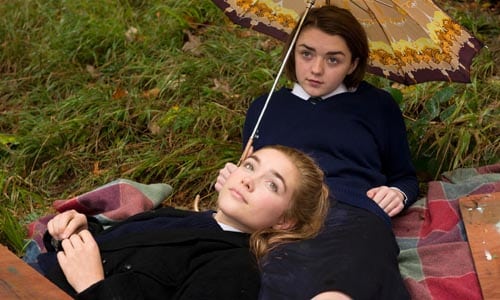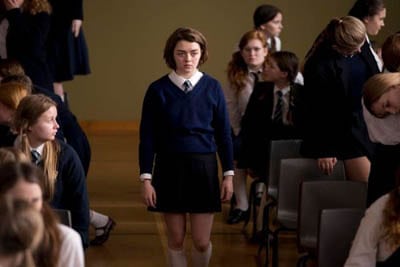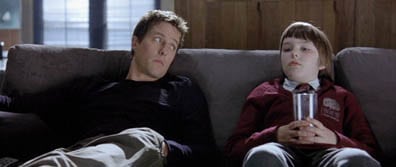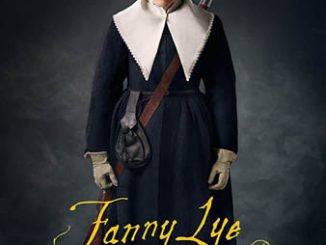The Falling (2014)
Directed by: Carol Morley
Written by: Carol Morley
Starring: Florence Pugh, Joe Cole, Maisie Williams, Maxine Peake

The Falling (2014)
Written and directed by Carol Morley

Helmed by director Carol Morley (best known for the powerful docu-drama Dreams of a Life), this is a strong, and blackly funny, feminist piece about sexual repression, intimacy and formative experiences during the late sixties. The setting is an old fashioned all girl’s school hit by a sudden and possibly supernatural psychodemic – a quasi-Victorian foundation over which a very layered piece has been built. Charting the complicated pairing of Lydia (Williams) and her more glamorous best friend Abigail (Pugh), the basic plot sees their bond become unequal after the latter loses her virginity to the former’s brother Kenneth (Cole). There are consequences to this loss of innocence, described by Abigail as ‘a little death’, as both parties feel increasingly uneasy which leads to an intense fall out/ dumping (“you think we’re over?” asks a pleading Lydia). Tragic events follow, the nature of which I’d never wish to spoil for viewers, and from the remnants of this once poignant relationship an occult phenomena appears to be birthed. A plague of fainting, lead by Lydia, spreads across the gothic grounds and down the school corridors. In classes, break-time and beside the pond, girls collapse in isolation and unison and fall into consciousness-losing fits. At first the teachers dismiss the outbreak as a phase, nothing more than a bunch of silly girls acting up, before they try to contain it. This climaxes in a remarkable assembly set-piece that’s an early contender for this year’s most haunting scene.

By now you’re probably wondering if the cause biological or some sort of group hysteria. Yet even after watching it you’ll be similarly unsure. Morley is vague on the details because, really, in terms of the aftermath they don’t matter. Thematically there are hints the epidemic is standing in for inhibited sexuality or alienation. Ideas such as these provide the real meat of the piece, as we see how the group dynamics change. Brash, arrogant and self-centred, Lydia is not a particularly sympathetic lead, yet it’s hard not to be invested in her search for emotional stability. This sees her go to extreme and even dangerous lengths to find a centre and revive a sense of identification with Abigail. Truly there is a lot to recommend here. The young actors are fantastically cast, with Williams effortlessly shaking off her Game of Thrones performance. Furthermore, the atmosphere is dream-like and some of the images will stick with you long after the credits. I also want to give special mention to the soundtrack, which is among the most striking I have ever heard, surprisingly arranged by former Everything But The Girl singer Tracey Thorn. Onscreen much of it comes via Lydia’s rattling xylophone from the school’s alternative orchestra (fronted by Abigail). These musical sequences are unapologetically long and whimsical, yet they work to give The Falling a unique otherworldly feel.

This slightly surreal feel also provides the film’s most notable weakness, with the black comedy puncturing a number of the movie’s more emotional beats. Since this is largely a perspective piece then it is ok to see the adults largely caricatured. However, in the final act Lydia’s blood-tie with her agoraphobic mother (Peake) is developed in an uncharacteristically melodramatic way. This means as an audience we’re asked to take seriously a character that’s been largely played for laughs ’til then. As such, a series of potentially important revelations are done a disservice and the thematic (as opposed to plot driven) finale ultimately misses its mark. Similarly Kenneth’s role is mostly defined by a single trait (sleaze) which also goes some way towards undermining the potentially shocking impact of the closing scenes. The bizarre change in dramatic register may fit with the uncanny valley we’ve been asked to walk ‘til now, yet it lacks a congruent pay-off and feels like the ending to a different film. I’d even say it feels as clumsily rushed as if I simply ended my review here.
Rating: 









Be the first to comment